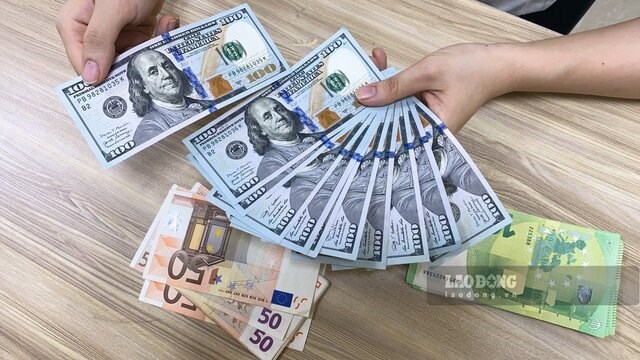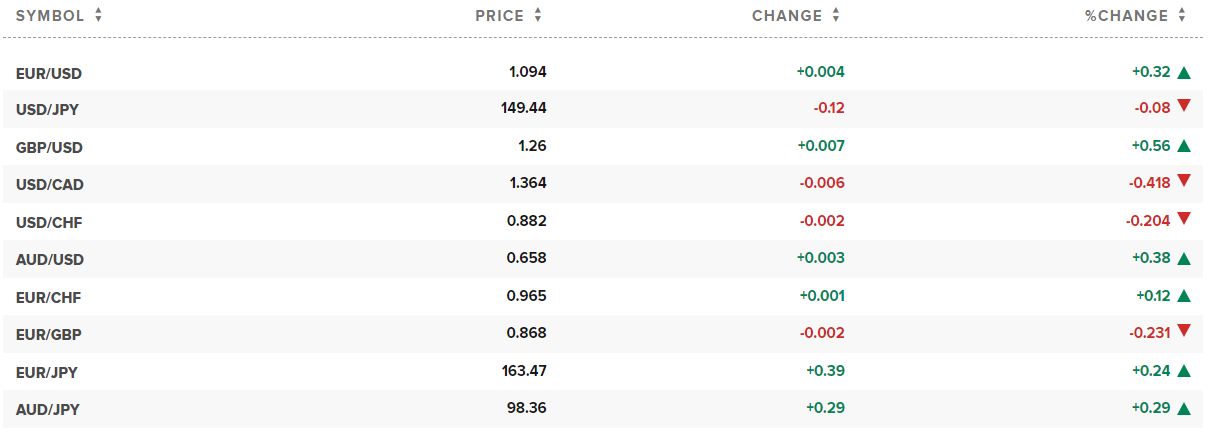
How much is 1 USD in VND today?
The central exchange rate is listed by the State Bank at 23,927 VND/USD.
Today's black market USD exchange rate is at 24,050 - 24,420 VND (buy - sell).
Vietcombank USD exchange rate today is listed at 24,050 VND - 24,420 VND (buy - sell).
Vietcombank Euro exchange rate is currently at 25,752 VND - 27,166 VND (buy - sell).
The current Japanese Yen exchange rate is 157.66 VND - 166.79 VND (buy - sell).
The current British Pound exchange rate is 29,598 VND - 30,859 VND (buy - sell).
Today's Yuan exchange rate is at 3,322 VND - 3,464 VND (buy - sell).
USD price today
The US Dollar Index (DXY) measures the greenback's fluctuations against six major currencies (EUR, JPY, GBP, CAD, SEK, CHF), recording at 103.35 points.

It was a tough week for the US dollar. The dollar index hit a more than two-month low as the latest Federal Reserve meeting was announced, reinforcing speculation that the tightening cycle is over. At one point during the week, the DXY index fell to 103.17, its lowest level in more than two months.
Specifically, the FED will proceed "carefully", "all participants assess the maintenance" and current interest rates are appropriate.
However, the number of unemployment benefit applications in the US decreased, causing the USD Index to recover slightly. The USD still traded in a rather "sluggish" state at the end of the week because investors were uncertain about the path of US interest rates. Liquidity is still limited.
In Asia, the Japanese yen rose 0.04% to 149.49 yen per dollar. The yen has been slowly climbing away from a near 33-year low of 151.92. The yen has rallied 1.5% for the month.
Japan’s core consumer price growth edged up in October after falling the previous month, reinforcing views that persistent inflation could force the Bank of Japan (BOJ) to withdraw its monetary stimulus for a long time.
“We believe the BOJ could remove the yield curve program as early as the first quarter of next year, when Japanese government bonds appear to have stabilized… Rates would then rise in the second quarter of 2024 if wage growth continues to accelerate,” ING economists said.
Source





























![[Photo] National Assembly Chairman Tran Thanh Man visits Vietnamese Heroic Mother Ta Thi Tran](https://vphoto.vietnam.vn/thumb/1200x675/vietnam/resource/IMAGE/2025/7/20/765c0bd057dd44ad83ab89fe0255b783)








































































Comment (0)